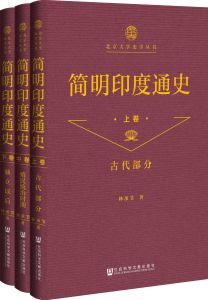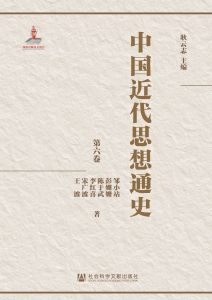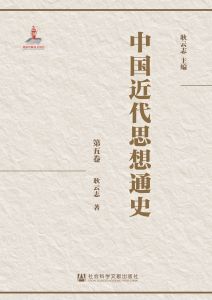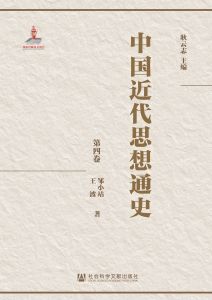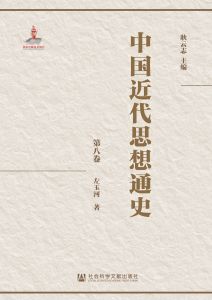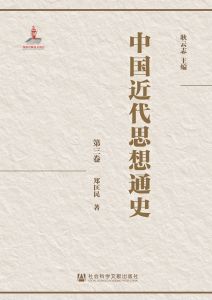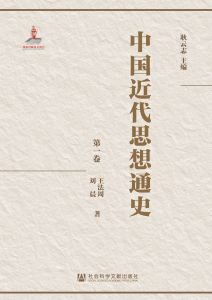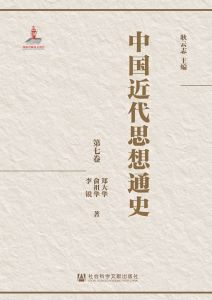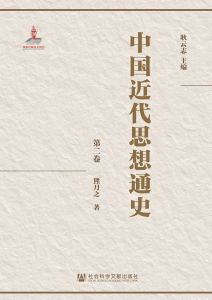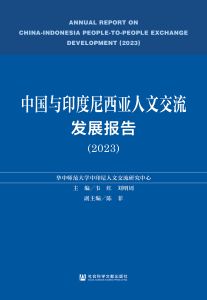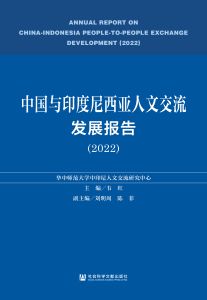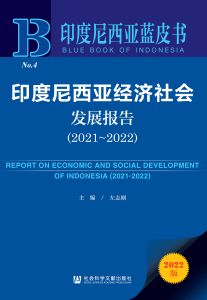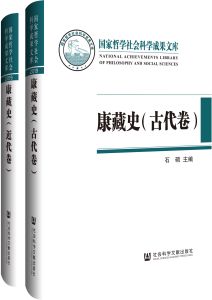首页 >
图书详情

图书简介
目录
参考文献
音频
视频
印度作为世界文明古国,其灿烂的古代文明享誉世界,近代饱受殖民侵略和压迫,通过独特的非暴力斗争道路(在其他条件配合下)取得独立。独立后的印度在国家建设上历经艰难曲折,由于不断总结经验教训,坚持前进,时至今日已然成为具有很大世界影响力的东方大国,发展速度跃居世界前列。作为印度的近邻,中国有越来越多的读者想要了解印度,包括其历史和现状;有些对印度已经有初步了解的人希望得到更多信息,有更系统的认知。这样,就需要有一部较全面系统又较为简明的印度通史,以方便阅读。 本书从古代写到21世纪初,全书分为三卷,即上卷“古代部分”、中卷“殖民统治时期”和下卷“独立以后”。独立以后篇幅较多是这部通史的特点。各卷卷首分别有绪论,提炼和勾画出各时期历史的重点和主要特点。
[展开]
-
绪论
-
第一章 从自治领到成为共和国
-
一 自治领政权的建立
-
二 土邦归并和全国行政区划的统一
-
三 制止教派仇杀
-
四 发展经济的初步措施
-
五 工农运动和政府的态度
-
六 自治领政府的外交政策
-
七 印度共产党和社会党
-
八 宪法的制定,印度成为主权共和国
-
-
第二章 尼赫鲁执政时期
-
一 议会民主制实施的开始
-
二 建立社会主义类型社会决议
-
三 马哈拉诺比斯模式和计划经济的实施
-
四 土地改革和乡村发展
-
五 教育的初步发展
-
六 世俗化政策的实施
-
七 语言邦的建立和官方语言的确定
-
八 外交政策的波动
-
九 主要在野党的活动
-
十 尼赫鲁执政的最后岁月
-
-
第三章 夏斯特里短期执政和英·甘地第一次执政
-
一 夏斯特里执政
-
二 英·甘地继任总理
-
三 绿色革命的开始
-
四 1967年大选,国大党受挫
-
五 纳萨尔巴里农民武装斗争
-
六 经济政策的激进化与国大党的分裂
-
七 1971年大选,英·甘地政策走向极端化
-
八 外交政策与第三次印巴战争
-
九 经济政治形势恶化
-
十 宣布全国处于紧急状态
-
十一 1977年大选,国大党惨败
-
-
第四章 人民党短期执政和英·甘地第二次执政
-
一 人民党政府的政策
-
二 1980年大选,英·甘地东山再起
-
三 经济政策调整
-
四 主要政党的分化和重组
-
五 教派冲突和种姓冲突
-
六 中央—地方矛盾的尖锐化
-
七 “蓝星行动”和英·甘地殉难
-
八 外交政策
-
-
第五章 拉吉夫·甘地执政时期
-
一 拉·甘地继任总理与1984年人民院选举
-
二 缓解中央—地方紧张关系
-
三 开始实行经济改革
-
四 绿色革命的继续和农业的发展
-
五 廉洁政治和提高行政效率的努力
-
六 外交政策的新方向
-
七 形势的急转直下
-
八 教派主义活动增强和拉·甘地的态度
-
九 1989年大选和拉·甘地政府下台
-
-
第六章 全国阵线执政时期
-
一 为什么会出现中央联合政府
-
二 维·普·辛格政府的政策
-
三 维·普·辛格政府倒台
-
四 谢卡尔的短暂执政和1991年人民院选举
-
-
第七章 拉奥执政时期
-
一 政府的成立和稳定财政的措施
-
二 经济改革的深入和经济发展
-
三 中央—地方矛盾的缓解
-
四 教派冲突的激化
-
五 实行曼达尔委员会建议和种姓政党的兴起
-
六 外交政策的调整
-
七 政府陷于困境和1996年人民院选举
-
-
第八章 联合阵线执政时期
-
一 印度人民党的13天政权
-
二 联合阵线的两届政府
-
三 经济改革的继续
-
四 内政措施
-
五 对外政策和古杰拉尔主义
-
六 1998年人民院选举
-
-
第九章 印度人民党为首的全国民主联盟执政时期
-
一 全国民主联盟的两届政府
-
二 经济改革的深入和经济发展
-
三 搞教派主义还是世俗化
-
四 几项内政措施
-
五 核试验和核政策
-
六 全国民主联盟政府的对外关系
-
七 2004年大选,团结进步联盟政府的建立
-
八 印度在崛起中
-
-
附录一 历届印度总统、副总统及任期(至2007年)
-
总统
-
副总统
-
-
附录二 印度独立以来历届联邦政府(至2007年)
-
附录三 各宗教及主要语种人口数
-
附录四 大事年表
[1][1]〔印〕比·克·阿卢瓦利亚、夏希·阿卢瓦利亚:《拉吉夫·甘地——一个英勇的形象》,肖耀先译,上海人民出版社,1986。
[2][2]陈峰君:《东亚与印度:亚洲两种现代化模式》,经济科学出版社,2000。
[3][3]〔美〕弗兰克尔:《印度独立后政治经济发展史》,孙培钧等译,中国社会科学出版社,1989。
[4][4]高鲲、张敏秋主编《南亚政治经济发展研究》,北京大学出版社,1995。
[5][5]黄思骏:《印度土地制度研究》,中国社会科学出版社,1998。
[6][6]〔印〕克里尚·巴蒂亚:《英迪拉·甘地》,上海师范大学外语系译,上海人民出版社,1977。
[7][7]李连庆:《英迪拉·甘地》,浙江人民出版社,1997。
[8][8]梁洁筠:《尼赫鲁家族浮沉记》,时事出版社,1994。
[9][9]林承节:《独立后的印度史》,北京大学出版社,2005。
[10][10]林承节:《印度近二十年的发展历程——从拉吉夫·甘地执政到曼莫汉·辛格政府的建立》,北京大学出版社,2012。
[11][11]林承节:《殖民统治时期的印度史》,北京大学出版社,2004。
[12][12]林承节主编《印度现代化的发展道路》,北京大学出版社,2001。
[13][13]林良光、叶正佳、韩华:《当代中国与南亚国家关系》,社会科学文献出版社,2001。
[14][14]林良光主编《印度政治制度研究》,北京大学出版社,1995。
[15][15]刘健、朱明忠、葛维钧:《印度文明》,中国社会科学出版社,2004。
[16][16]〔印〕鲁达尔·达特、K.P.M.桑达拉姆:《印度经济》上、下册,雷启淮等译,四川大学出版社,1994。
[17][17]罗荣渠:《现代化新论——世界与中国的现代化进程》,北京大学出版社,1993。
[18][18]罗荣渠:《现代化新论续篇——东亚与中国的现代化进程》,北京大学出版社,1997。
[19][19]邱永辉、欧东明:《印度世俗化研究》,巴蜀书社,2003。
[20][20]邱永辉:《现代印度的种姓制度》,四川人民出版社,1996。
[21][21]尚会鹏:《种姓与印度教社会》,北京大学出版社,2001。
[22][22]司马军、李毅:《印度市场经济体制》,兰州大学出版社,1994。
[23][23]孙培钧、华碧云、张敏秋、高鲲:《印度垄断财团》,时事出版社,1984。
[24][24]孙培钧、华碧云主编《印度国情与综合国力》,中国城市出版社,2001。
[25][25]孙培钧、张敏秋、于海莲:《印度:从“半管制”走向市场化》,武汉出版社,1994。
[26][26]孙培钧主编《转型中的印度经济》,鹭江出版社,1996。
[27][27]孙士海主编《南亚的政治、国际关系及安全》,中国社会科学出版社,1998。
[28][28]孙士海主编《印度的发展及其对外战略》,中国社会科学出版社,2000。
[29][29]王宏纬:《南亚区域合作的现状与未来》,四川大学出版社,1993。
[30][30]王宏纬:《喜马拉雅山情结:中印关系研究》,中国藏学出版社,1998。
[31][31]王联、史哲、叶海林:《南亚上空的蘑菇云——印巴核试验前前后后》,新华出版社,1998。
[32][32]〔印〕N.维特尔、S.曼哈林安姆:《印度IT产业揭密》,矽贝、今彦译,新华出版社,2004。
[33][33]文富德、唐鹏琪:《印度科学技术》,巴蜀书社,2004。
[34][34]文富德:《印度经济:发展、改革与前景》,巴蜀书社,2003。
[35][35]文富德:《印度经济发展:经验与教训》,四川大学出版社,1994。
[36][36]吴永年等:《21世纪印度外交新论》,上海译文出版社,2004。
[37][37]〔印〕伊曼纽尔·波奇帕达斯笔录《甘地夫人自述》,亚南译,时事出版社,1981。
[38][38]〔印〕因德尔·马尔豪特拉:《英迪拉·甘地传》,施美华等译,世界知识出版社,1992。
[39][39]张力:《印度总理尼赫鲁》,四川人民出版社,1997。
[40][40]张敏秋主编《中印关系研究(1947~2003)》,北京大学出版社,2004。
[41][41]张淑兰:《印度拉奥政府经济改革研究》,新华出版社,2003。
[42][42]赵蔚文:《印美关系爱恨录》,时事出版社,2003。
[43][43]赵蔚文:《印中关系风云录(1949~1999)》,时事出版社,2000。
[44][44]朱明忠、尚会鹏:《印度教:宗教与社会》,世界知识出版社,2003。
[45][45]Adhikari,G.,Documents of the History of the Communist Party of India ,Vol.7,8,New Delhi,1971.
[46][46]Aggarwal,J.C.,Elections in India(1952-1990) ,New Delhi,1992.
[47][47]Aggarwal,J.C.,Elections in India,1998 ,New Delhi,1998.
[48][48]A.G.Noorani,The RSS and the BJP ,Delhi,2000.
[49][49]Ahluwalia,I.J.,& Little,I.M.D.,India’s Economic Reforms and Development:Essays for Manmohan Singh ,Oxford,2000.
[50][50]All India Congress Committee,A Contemporary History of the Indian National Congress ,General Editor,B.N.Pande,Vol.Ⅳ,New Delhi,1990.
[51][51]All India Congress Committee,Indian National Congress Resolutions on Economic Policy Programme,1924-1954 ,New Delhi,1954.
[52][52]Arya,P.P.,& B.B.Tandon,eds.,Multinationals Versus Swadeshi Today:A Polish Framework for Economic Nationalism ,New Delhi,1999.
[53][53]Bakshi,S.R.,Nehru and His Political Ideology ,New Delhi,1988.
[54][54]Bhambhri,C.P.,BJP led Government and Elections 1999 ,Delhi,2000.
[55][55]Bhambhri,C.P.,Indian Politics since Independence ,Delhi,1994.
[56][56]Bhambhri,C.P.,The Janata:A Profile ,New Delhi,1980.
[57][57]Bhambhri,C.P.,The Indian State:Fifty Years ,Delhi,1997.
[58][58]Bhatkal,Ramdas,Alternative Strategies and India’s Development ,Mumbai,1999.
[59][59]Bose,Mrigen,Jawaharlal Nehru and His Economic Policy ,Calcutta,1977.
[60][60]Bose,T.C.,Indian Federalism:Problems and Issues ,Calcutta,1987.
[61][61]Brass,Paul R.,The Politics of India Since Indenpence ,New Delhi,1992.
[62][62]Bright,J.S.,The Greatest Woman of The World ,New Delhi,1984.
[63][63]Brown,J.M.,Nehru ,New York,1999.
[64][64]Carras,Mary C.,Indira Gandhi:In the Crucible of Leadership:A Political Biography ,Bombay,1979.
[65][65]Chandra,Bipan,Mukherjee,A.,Mukherjee,M.,India After Independence ,New Delhi,1999.
[66][66]Corbridge,Stuart,& J.Harriss,Reinventing India:Liberalization,Hindu Nationalism and Popular Democracy ,Cambridge,2000.
[67][67]Datt,Rudder,Economic Reform in India:A Critique ,New Delhi,1997.
[68][68]Dutt,Rabindra Chandra,Retreat of Socialism in India:Two Decades Without Nehru,1964-1984 ,New Delhi,1987.
[69][69]Dutt,R.C.,Socialism of Jawaharlal Nehru ,New Delhi,1981.
[70][70]Dutt,R.,& Sundharam,K.P.M.,Indian Economy ,New Delhi,2001.
[71][71]Erdman,Howard L.,The Swatantra Party and Indian Conservatism ,Cambridge,1967.
[72][72]Gandhi,Indira,The Tasks Ahead ,New Delhi,1984.
[73][73]Gehlot,N.S.,ed.,Current Trends in Indian Politics ,New Delhi,1998.
[74][74]Ghosh,P.S.,BJP and the Evolution of Hindu Nationalism:From Periphery to Center ,New Delhi,1999.
[75][75]Gopal,Sarvepalli,Jawaharlal Nehru:A Biography ,Vol.2 and 3,London,1979 and 1984.
[76][76]Gordon,L.A.,& Oldenburg,P.,India Briefing,1992 ,Oxford,1992.
[77][77]Government of India Planning Commission,Second Five Plan:A Draft Outline ,Delhi,1951.
[78][78]Graham,B.D.,Hindu Nationalist and Indian Politicas:The Origins and Development of the Bharatiya Jan Sangh ,Cambridge,1990.
[79][79]Grenal,J.S.,The Sikhs of Punjab ,Cambridge,1990.
[80][80]Grover,V.,& Aarora,R.,India,Fifty Years of Independence ,Delhi,1997.
[81][81]Gupta,D.C.,Indian Government and Politics,1947-1987 ,New Delhi,1988.
[82][82]Haridev Sharma,et al.,Fifty Years Socialist Movement in India ,New Delhi,1998.
[83][83]Indian Economy Since Independence ,Ed. By Kapila,Uma,New Delhi,1996.
[84][84]Jain,S.K.,Party Politics and Center-Stste Relations in India ,New Delhi,1994.
[85][85]Janata’s Foreign Policy ,Ed. By Misra,K.P.,New Delhi,1979.
[86][86]Jawaharlal Nehru’s Speeches ,Vol.1-4,New Delhi,1949-1963.
[87][87]Jenkins,Rob,Democratic Politics and Economic Reform in India ,Cambridge,1999.
[88][88]Kapoor,P.P.,Economic Thought of Jawahalal Nehru ,New Delhi,1985.
[89][89]Kapur,A.,Pokhran and Beyond:India’s Nuclear Behaviour ,Oxford,2003.
[90][90]Karlekar,Hiranmay,Independent India:The First Fifty Years ,Delhi,1998.
[91][91]Khanna,S.K.,Coalition Politics in India ,New Delhi,1999.
[92][92]Kusum Nair,Indian Agricultural after Green Revolution ,Chicago,1979.
[93][93]Mahajan,V.D.,History of Modern India ,Vol.1,2,New Delhi,1983.
[94][94]Mahajan,V.S.,Political Economy of Reform and Liberalization ,New Delhi,1997.
[95][95]Mahendra,K.L.,Defeat the RSS Fascist Desighs ,New Delhi,1973.
[96][96]Mansingh,Surjit,India’s Search for Power:Indira Gandhi’s Foreign Policy,1966-1982 ,New Delhi,1984.
[97][97]Menon,V.P.,The Story of the Integration of the Indian States ,London,1956.
[98][98]Metcalf & Metcalf,A Concise History of India ,Cambridge,2002.
[99][99]Misri,K.C.,Land System and Land Reform ,Bombay,1990.
[100][100]Nayar,Ray,India’s Mixed Economy ,Bombay,1989.
[101][101]Nugent,Nicholas,Rajiv Gandhi,Son of a Dynasty ,London,1990.
[102][102]Oldenburg,P.,ed.,India Briefing,1995-1996 ,London,1995.
[103][103]Pal,Kiran,Tension Areas in Centre-State Relation in India ,New Delhi,1993.
[104][104]Pandey,Rajendra,Modernisation and Social Change ,New Delhi,1988.
[105][105]Prasad,K.N.,Indian Economy Since 1951 ,New Delhi,1993.
[106][106]Prasad,Anirudh,Centre and State Powers under Indian Federalism ,New Delhi,1980.
[107][107]Prasad,K.N.,Indian Economy Since Independence,A 50 Year’s Profile ,New Delhi,1998.
[108][108]Raghavan,G.N.S.,& Balachandran,G.,Forty Years of World’s Largest Democracy ,Delhi,1990.
[109][109]Rajaopurolit,A.R.,Land Reform in India ,New Delhi,1984.
[110][110]Ram,Sundar,ed.,Coalition Politics in India ,Jaipur,2000.
[111][111]Reddy,C.S.S.,Politics of land Reform in India ,New Delhi,1997.
[112][112]Ritu,Sarin,The Assassination of Indira Gandhi ,New Delhi,1984.
[113][113]Sankhdhher,M.M.,Secularism in India:Dilemmas and Challenges ,New Delhi,1992.
[114][114]Selected Thoughts of Indira Gandhi:A Book of Quotes ,Com. by Dhawan,S.K.,Delhi,1985.
[115][115]Selected Works of Jawaharlal Nehru ,Second series,New Delhi,1984.
[116][116]Sengupta,P.,& Gupta,A.K.,Naxalbari and Indian Revolution ,Calcutta,1983.
[117][117]Sen,K.,& Vaidya,R.R.,The Process of Financial Liberalization in India ,Oxford,1999.
[118][118]Sen,Mohit.,Glimpses of the History of the Indian Communist Movement ,Madras,1997.
[119][119]Sharma,K.,Political Modernization in India ,New Delhi,1982.
[120][120]Shourie,Arun,Institution in the Janata Phase ,Bombay,1980.
[121][121]Shourie,Arun,Mrs.Gandhi’s Second Reign ,Bombay,1983.
[122][122]Singh,Akhileshwar,Political Leadership of Jawaharlal Nehru ,New Delhi,1986.
[123][123]Singh,P.,& Bal,G.,Strategies of Social Change in India ,New Delhi,1996.
[124][124]Singh,Yogendra,Modernization of Indian Tradition ,1986.
[125][125]Sinha,Ajoy,Indo-US Relations:From the Emergence of Bangladesh to the Assassination of Indira Gandhi ,Delhi,1994.
[126][126]Srinivas,M.N.,Social Change in Modern India ,New Delhi,1992.
[127][127]Srivastava,C.P.,Lal Bahadur Shastri ,Delhi,1995.
[128][128]Statistical Outline of Indian Economy ,Compiled by Kulkarni,V.G.,Bombay,1968.
[129][129]Thakur,Ramesh,The Government and Politics of India ,New York,1995.
[130][130]Tharoor,Shashi,Reasons of State:Political Development and India’s Foreign Policy under Indira Gandhi,1966-1977 ,New Delhi,1982.
[131][131]The Industrial Law ,Compiled by Malik,P.L.,Lucknow,1968.
[132][132]Tomlinson,B.R.,The Economy of Modern India,1860-1970 ,London,1993.
[133][133]Tyson,Geoffrey,Nehru:The Years of Power ,London,1966.
[134][134]Vajpeyi,D.K.,Modernization and Social Change in India ,New Delhi,1979.
[135][135]Venkateswaran,R.J.,Cabinet Government in India ,London,1967.
[136][136]Venkateswarlu,B.,Dynamics of Green Revolution in India ,New Delhi,1985.
[137][137]Verma,B.N.,Agrarian Relation in Transition ,New Delhi,1993.
[138][138]Vohra,Ranbir,The Making of India ,New York,2001.
[139][139]Wolpert,Stanley,A New History of India ,New York,1993.
[展开]




